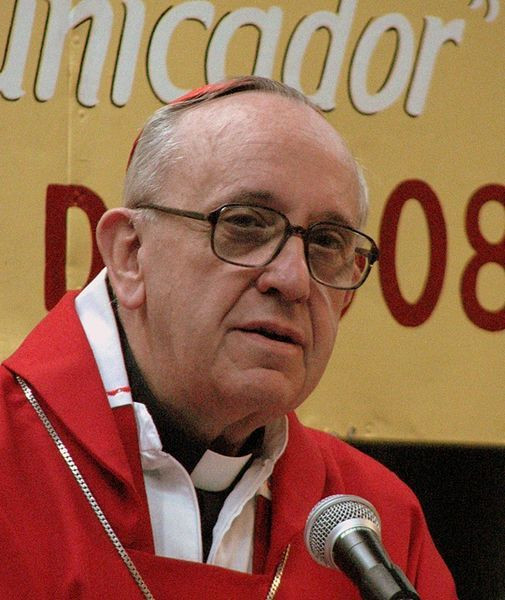
After a secretive vote within the Conference of Cardinals earlier this month, Jorge Cardinal Bergoglio of Argentina was hailed as the first Latino pope. However, recently a number of Latinos worldwide have questioned: Can Pope Francis really be considered Latino?
The 76-year-old pontiff was born in Argentina. His native language is also indeed Spanish. However, Pope Francis is the son of Italian immigrants to the South American nation, hence his former last name, Bergoglio. A number of Latinos have debated the true ethnicity of the new pope.
"Just because he is born in Argentina does not make him Latino at all," said Eric Cortes, the son of Colombian immigrants in Philadelphia. "Are Italians Latino? No."
Many others disagree: "If [he] was raised there, lived there, [embraced] the culture there, who has the right to take that away?" said Andrew Ysiano, publisher of LatinoTimes.org and a Mexican-American himself.
"[Pope Francis] is the most European alternative and the closest thing to an Italian," Professor Philip Jenkins of Baylor University wrote in a recent periodical. Until Pope John Paul II, originally from Poland, was elected in 1978, a heavy majority of pontiffs claimed Italian heritage.
Puerto Rico native Ivette Baez who resides in New Jersey wrote on the "Being Latino" Facebook page that she believed that no matter the pope's true ancestry, his beatification brought the possibility of a "focus on the problems in Latin America."
Pope Francis was praised by many for his initiatives that spanned from visiting AIDS victims to holding papal mass at an Italian prison. As cardinal, he was well known in Buenos Aires for strictly using mass transit and living his life as close to the ways of the common people despite his position within church leadership.
In addition to the debate over Pope Francis' true background, Yale University scholar Stephen Pitti, among others, have delineated between the three common ethnic terms often erroneously aggregated to have the same meaning. He said that Latino is mostly germane to only the United States, to describe those whose roots are in Latin America. Pitti told FOX News Latino that residents of Latin American countries instead refer to themselves as citizens of their respective nations, such as "Panamanian" and "Honduran" instead of "Latino" or "Latin American."
He notes that the term "Hispanic" truly refers to immigrants from Spain but is used by the government as a blanket term for Spanish-speaking Americans. The European culture of Spain is very different from Spanish-speaking cultures in the Western Hemisphere.
No matter the ethnicity of Pope Francis, Catholics worldwide believe that his time as pope will be remembered as a constructive and cherished time for the church.
"He is an example of how to have humility and love that the church needs," said Richard Ahumada, a parishioner in Texas.
© 2025 Latin Times. All rights reserved. Do not reproduce without permission.




